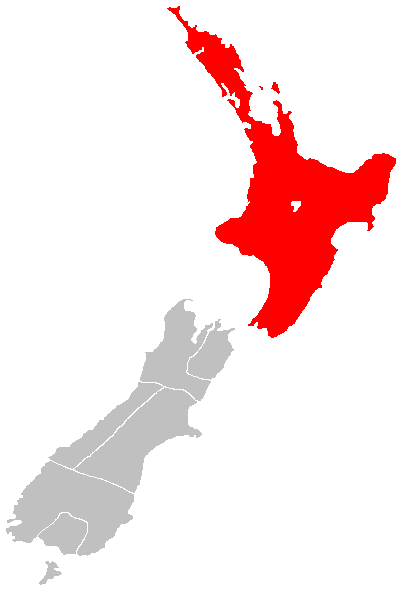|
Te Ua Haumēne
Te Ua Haumēne was a New Zealand Māori religious leader during the 1860s. He founded the Pai Mārire movement, which became hostile and engaged in military conflict against the New Zealand government during the Second Taranaki War and the East Cape War. Early life Born at Waiaua, South Taranaki, in the early 1820s, Te Ua was of the Taranaki ''iwi'' (tribe). His father Tūtawake died soon after his son's birth and Te Ua was captured, along with his mother Paihaka, during a 1826 raid mounted by the Waikato ''iwi''. Enslaved, their captors took them to Kāwhia. There was a Christian presence in the area, and Te Ua was taught to read and write and also studied the New Testament. Soon after John Whiteley, a Wesleyan missionary, established a mission station in Kāwhia, Te Ua was baptised as Horopāpera, a transliteration of the name Zerubbabel. Te Ua returned to the Taranaki in 1840, joining the Wesleyan mission at Waimate. By the 1850s he was a supporter of the '' Kīngitanga' ... [...More Info...] [...Related Items...] OR: [Wikipedia] [Google] [Baidu] |
Māori People
The Māori (, ) are the indigenous Polynesian people of mainland New Zealand (). Māori originated with settlers from East Polynesia, who arrived in New Zealand in several waves of canoe voyages between roughly 1320 and 1350. Over several centuries in isolation, these settlers developed their own distinctive culture, whose language, mythology, crafts, and performing arts evolved independently from those of other eastern Polynesian cultures. Some early Māori moved to the Chatham Islands, where their descendants became New Zealand's other indigenous Polynesian ethnic group, the Moriori. Initial contact between Māori and Europeans, starting in the 18th century, ranged from beneficial trade to lethal violence; Māori actively adopted many technologies from the newcomers. With the signing of the Treaty of Waitangi in 1840, the two cultures coexisted for a generation. Rising tensions over disputed land sales led to conflict in the 1860s, and massive land confiscations, to ... [...More Info...] [...Related Items...] OR: [Wikipedia] [Google] [Baidu] |
Archangel
Archangels () are the second lowest rank of angel in the hierarchy of angels. The word ''archangel'' itself is usually associated with the Abrahamic religions, but beings that are very similar to archangels are found in a number of other religious traditions. Archangels also appear in the religious texts of Gnosticism. The English word ''archangel'' is derived from Greek ἀρχάγγελος (arkhángelos), the Greek prefix "arch-" meaning "chief". A common misconception is that archangels are the highest rank of angel, this misconception stems from John Milton's ''Paradise Lost'' and likely confusion over the "arch-" prefix. Description Michael and Gabriel are recognized as archangels in Judaism, Islam, and by most Christians. Some Protestants consider Michael to be the only archangel. Raphael—mentioned in the deuterocanonical Book of Tobit—is also recognized as a chief angel in the Catholic and Eastern Orthodox churches. Gabriel, Michael, and Raphael are v ... [...More Info...] [...Related Items...] OR: [Wikipedia] [Google] [Baidu] |
Trevor Chute
General Sir Trevor Chute, KCB (31 July 1816 – 12 March 1886) was an Irish-born officer who served in the British Army during the Victorian era. Born in County Kerry, Ireland, Chute joined the British Army in 1832. Posted to British India with the 70th Regiment, he helped deal with the Indian Mutiny of 1854. Sent to the Antipodes, he served in the New Zealand Wars and later in Australia. He returned to New Zealand in 1865 as a major general and commander of all British forces in the country. He led a four-week campaign during the Second Taranaki War to destroy Maori resistance in the Taranaki. The campaign was the last to be carried out in New Zealand by imperial troops. At the end of his service in New Zealand, he went back to Australia. Knighted in 1867, he returned to England in 1870 with the last of the Imperial forces garrisoning Australia. Promoted to General in 1877, he retired from the British Army four years later. He died in 1886 at Berkshire in England. Early l ... [...More Info...] [...Related Items...] OR: [Wikipedia] [Google] [Baidu] |
Major-general (United Kingdom)
Major general (Maj Gen) is a "two-star" rank in the British Army and Royal Marines. The rank was also briefly used by the Royal Air Force for a year and a half, from its creation to August 1919. In the British Army, a major general is the customary rank for the appointment of division commander. In the Royal Marines, the rank of major general is held by the Commandant General. A Major General is senior to a Brigadier but subordinate to lieutenant general. The rank is OF-7 on the NATO rank scale, equivalent to a rear admiral in the Royal Navy or an air vice-marshal in the Royal Air Force and the air forces of many Commonwealth countries. The rank insignia is the star (or 'pip') of the Order of the Bath, over a crossed sword and baton. In terms of orthography, compound ranks were invariably hyphenated, prior to about 1980. Nowadays the rank is almost equally invariably non-hyphenated. When written as a title, especially before a person's name, both words of the rank ... [...More Info...] [...Related Items...] OR: [Wikipedia] [Google] [Baidu] |
Ōpōtiki
Ōpōtiki (; from ''Ōpōtiki-Mai-Tawhiti'') is a small town in the eastern Bay of Plenty in the North Island of New Zealand. It houses the headquarters of the Ōpōtiki District Council and comes under the Bay of Plenty Regional Council. Geography The town of Ōpōtiki is situated exactly on latitude 38° South. The climate is temperate. Summer temperatures reach the mid-20s (Celsius, mid-70s Fahrenheit) on the coast and encourage a continuation of the beach culture of the Bay of Plenty. Winter days are often cloudless, the daytime temperature never drops below freezing but there may be a mild frost at night. Winter snow falls along the crest of the ranges, and on the higher peaks (over 1000 m) may remain for a few weeks. Rain occurs at any season. Severe localised rainstorms ('cloudbursts') may occur in the high country and have caused flash flooding including past inundations of Ōpōtiki township. Demographics The Ōpōtiki urban area, as defined by Statistics New Zea ... [...More Info...] [...Related Items...] OR: [Wikipedia] [Google] [Baidu] |
Carl Sylvius Völkner
Carl Sylvius Völkner ( – 2 March 1865) was a German-born Protestant missionary in New Zealand who was hanged and decapitated at his church grounds on the east coast of the North Island in what became known as the Völkner Incident. Biography Völkner was born in the town of Kassel, in the Electorate of Hesse, Germany, around 1819. He was sent to New Zealand by the North German Missionary Society, along with several other missionaries, having received training at the missionary college at Hamburg. He arrived in the country in August 1849 and was sent to Taranaki, to work alongside another German missionary, Johann Riemenschneider. In 1852 Völkner offered his services to the Church Missionary Society (CMS). He married Emma Lanfear, sister of a CMS missionary on 29 June 1854. For several years he worked as a lay teacher in the lower Waikato and in 1857 became a naturalised citizen. Völkner was ordained a deacon in 1860 and the following year, in August, he became a p ... [...More Info...] [...Related Items...] OR: [Wikipedia] [Google] [Baidu] |
North Island
The North Island, also officially named Te Ika-a-Māui, is one of the two main islands of New Zealand, separated from the larger but much less populous South Island by the Cook Strait. The island's area is , making it the world's 14th-largest island. The world's 28th-most-populous island, Te Ika-a-Māui has a population of accounting for approximately % of the total residents of New Zealand. Twelve main urban areas (half of them officially cities) are in the North Island. From north to south, they are Whangārei, Auckland, Hamilton, Tauranga, Rotorua, Gisborne, New Plymouth, Napier, Hastings, Whanganui, Palmerston North, and New Zealand's capital city Wellington, which is located at the south-west tip of the island. Naming and usage Although the island has been known as the North Island for many years, in 2009 the New Zealand Geographic Board found that, along with the South Island, the North Island had no official name. After a public consultation, the board offi ... [...More Info...] [...Related Items...] OR: [Wikipedia] [Google] [Baidu] |
Gisborne, New Zealand
Gisborne ( mi, Tūranga-nui-a-Kiwa "Great standing place of Kiwa") is a city in northeastern New Zealand and the largest settlement in the Gisborne District (or Gisborne Region). It has a population of The district council has its headquarters in Whataupoko, in the central city. The settlement was originally known as Turanga and renamed Gisborne in 1870 in honour of New Zealand Colonial Secretary William Gisborne. Early history First arrivals The Gisborne region has been settled for over 700 years. For centuries the region has been inhabited by the tribes of Te Whanau-a-Kai, Ngaariki Kaiputahi, Te Aitanga-a-Mahaki Rongowhakaata, Ngāi Tāmanuhiri and Te Aitanga-a-Hauiti. Their people descend from the voyagers of the Te Ikaroa-a-Rauru, Horouta and Tākitimu waka. East Coast oral traditions offer differing versions of Gisborne's establishment by Māori. One legend recounts that in the 1300s, the great navigator Kiwa landed at the Turanganui River first on the ... [...More Info...] [...Related Items...] OR: [Wikipedia] [Google] [Baidu] |
Ngāti Porou
Ngāti Porou is a Māori iwi traditionally located in the East Cape and Gisborne regions of the North Island of New Zealand. Ngāti Porou is affiliated with the 28th Maori Battalion and has the second-largest affiliation of any iwi in New Zealand, with 71,910 registered members in 2006. The traditional rohe or tribal area of Ngāti Porou extends from Pōtikirua and Lottin Point in the north to Te Toka-a-Taiau (a rock that used to sit in the mouth of Gisborne harbour) in the south. Mt Hikurangi features prominently in Ngāti Porou traditions as a symbol of endurance and strength, and holds tapu status. In these traditions, Hikurangi is often personified. Ngāti Porou traditions indicate that Hikurangi was the first point to surface when Māui fished up the North Island from beneath the ocean. His canoe, the ''Nuku-tai-memeha'', is said to have been wrecked there. The Waiapu River also features in Ngāti Porou traditions. History Pre-European history Ngāti Porou takes it ... [...More Info...] [...Related Items...] OR: [Wikipedia] [Google] [Baidu] |
East Cape
East Cape is the easternmost point of the main islands of New Zealand. It is located at the northern end of the Gisborne District of New Zealand's North Island. It can also refer to the broader Gisborne cape. East Cape was originally named "Cape East" by British explorer James Cook during his 1769–1779 voyage. It is one of four Cardinal Capes, alongside North Cape, West Cape and South Cape. Maritime New Zealand operates the East Cape Lighthouse is located at the cape's easternmost point.East Cape Lighthouse , Maritime New Zealand. Retrieved 1 December 2009. The small [...More Info...] [...Related Items...] OR: [Wikipedia] [Google] [Baidu] |
Kereopa Te Rau
Kereopa Te Rau (? – 5 January 1872) was a leader of Pai Mārire (Hauhau), a Māori religion. He played a key role in the Volkner Incident and was subsequently hanged for his part in it. Early life Little is known of Kereopa's early life but he was of the Ngāti Rangiwewehi ''iwi'' (tribe) of the Te Arawa confederation of tribes. He was baptised by the Catholic missionary Father Euloge Reignier in the 1840s and was given the Christian name of Kereopa, the Māori pronunciation of the Biblical name Cleopas. He may have served as a police officer in Auckland during the 1850s. He is known to have fought for the King Movement during the Invasion of the Waikato in 1863. His wife and two daughters are believed to have been killed in an attack mounted on 21 February 1864 by government forces on the village of Rangiaowhia near Te Awamutu in 1864. His sister was killed in defence of nearby Hairini the next day. Pai Mārire Shortly afterwards Kereopa met up with the prophet Te Ua Haumēne ... [...More Info...] [...Related Items...] OR: [Wikipedia] [Google] [Baidu] |
Waitōtara River
The Waitōtara River in New Zealand's North Island stretches approximately in length from its headwaters in the Matemateāonga Range to its mouth on the South Taranaki Bight. The river takes in significant tributaries such as the Ngutuwera, Makakaho, Pokeka, Omaru and Totara Streams. Settlements and access The river catchment and its tributaries are accessed via the Waitotara Valley Road and Ngutuwera Road, and associated side-roads. The village of Waitōtara is the predominant settlement of the catchment, located at the junction of the Waitotara Valley Road and State Highway 3. The viability of the Waitōtara settlement has recently been challenged by a number of devastating flood events, while the Waitotara School has undergone complete refurbishment. Along the Waitōtara River lie the localities of Rangitatau, Puau, Orangimea, Tawhiwhi, Makakaho Junction, Ngamatapouri and Taumatatahi. Ngutuwera catchment localities include Ngutuwera, Mangawhio, Waikare and the Omata Valle ... [...More Info...] [...Related Items...] OR: [Wikipedia] [Google] [Baidu] |





